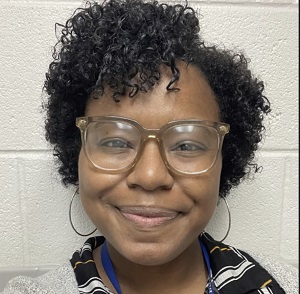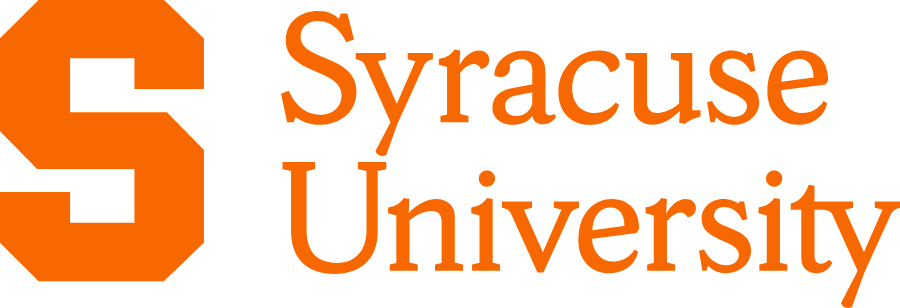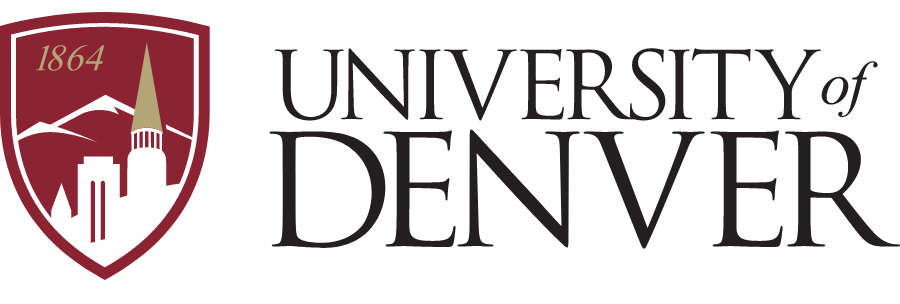A library media specialist is an information professional who typically works in a K–12 school setting. Library media specialists are professionals who have obtained a Master of Library and Information Science (MLIS) or related degree that often correlates with a concentration in library media or school librarianship. Most commonly, a library media specialist is working in a school setting and has a teaching license, endorsement, or certification at the chosen state level from their degree, which is typically required in addition to obtaining a Master’s in Library Information Science. Library media is focused on materials and resources that can be beneficial to academic learning and growth. This article will express what a library media specialist is, the degrees that are offered for a library media specialist, a few universities that offer library media studies, a brief look into what a library media program curriculum may look like, and the potential career outlook for an individual with a library media specialist degree.
Featured MLIS Programs
ADVERTISEMENT
Syracuse University
Master of Science in Library and Information Science Online
Syracuse University offers an online MS in Library and Information Science. The program can be completed in 18 months and includes the option to specialize in School Media or customize the program to align with your professional goals. No GRE is required.*
University of Denver
Master of Library and Information Science Online
University of Denver’s Morgridge College of Education offers an online, ALA-accredited Master of Library and Information Science program. Learn from practitioners and gain the service-based skills needed to connect communities with information in the digital age. No GRE is required.*
St. John’s University
Online Master of Science in Library and Information Science
Gain the advanced expertise that information specialist positions require with the online M.S. in Library and Information Science program from St. John’s University. Achieve your career goal by selecting from one of the following specializations:
Arizona State University
M.Ed in Learning Design and Technologies
Create literacy programs and curricula that fully incorporate digital technology and include themes of social justice.
What is a Library Media Specialist?
The role of a library media specialist is to provide a library media program that supports a school’s curriculum by providing resources and training on the materials in the library for students and teachers to become independent users of the information. The main role of a library media specialist is to collaborate with teaching staff in the school to help in the development of student literacy through the administration of the library media program. Some of the essential tasks and skills library media specialists are to have and do are: providing specialized instruction to students and teaching staff; overseeing the selection, organization, utilization, and maintenance of the library materials and collection; and obtaining and sharing information and curriculum resources for students and teachers. Programs are usually multidisciplinary and will require students to take a variety of core courses, major courses related to library science, and electives.
Is a Library Media Specialist Degree Offered Online?
When pursuing a library media specialist degree, many library information programs are available that offer the degree, and many are available online. Most coursework may be completed entirely online, and it is offered by faculty who teach library science graduate programs. Many of the library media specialist courses utilize synchronous video-conferencing sessions, digital video platforms, and collaborative boards to encourage collaboration, discussion, and peer networking with others pursuing a library media specialist degree. The availability of pursuing a library media specialist degree online allows students to take coursework and complete the program on their own time.
Degree options for Library Media Specialist
Universities all across the United States offer library information degrees at different levels, though most library media specialist roles require a teaching license or certification from a graduate program. Many of the MLIS degree programs are available online and in person, depending on the learning institution. Though most library media specialist careers require a master’s degree, different levels of degrees can be obtained before receiving a master’s degree in library media studies. The different levels of library media specialist degrees include:
- Associate Degree in Library Information Studies
Throughout a two-year library information science program, a student can learn about library media studies, which can be applied to library media specialist roles. For an associate degree as a library information specialist, students undergo a 2-year library and information program curriculum that offers general skills and information on educational and digital technologies. They will learn how to manage and organize a collection, how to effectively use print and online library services, and many other skills. Though only having an associate degree in library information will not be enough to pursue a career as a library media specialist, other career opportunities for a student with just an associate degree in library media are available, such as positions as a circulation clerk, library assistant, library shelver, and reference assistant. These positions will provide an introduction to the library working environment and allow for experience building for a library media specialist career.
- Bachelor’s Degree in Library Media Studies
Throughout a four-year library information science program, a student can obtain a bachelor’s degree related to library media studies. Getting a bachelor’s degree to become a library information specialist requires studying in library information science (LIS) programs that are usually multidisciplinary and will require students to take a variety of core courses, major courses related to library science, and electives to pass the program. Though a career as a library media specialist typically requires a master’s degree, some libraries may not have that as a requirement if an applicant completes a school library media practicum, 1 year of full-time teaching experience, or 1 year of full-time school library media-related experience. If a bachelor’s degree is obtained, an individual can also enroll in a school librarian licensure program to obtain a teaching license that will open up vastly more career opportunities. A few career opportunities for a student with just a bachelor’s degree in library media studies are roles like library media specialist assistant, library technician, and teacher.
- Master’s Degree in Library Media Studies
Receiving a Master’s degree in Library Information Science (MLIS) program is the most common and required degree for several library career positions. In a two-year library information science program, a student can obtain a master’s degree related to library media studies along with a teaching certificate for school librarianship concentrations. An online search for “library media specialist” may return results for “school librarian,” as the terms are often used interchangeably. For a master’s degree as a library media specialist, an MLIS program requires the student to take the core courses required in the program; additionally, for a library media specialist role, the program will provide courses and curriculum that will align with students’ fieldwork course (practicum), internships, and teacher licensing to pass and complete the MLIS graduate program for a library media specialist degree. A few alternative career opportunities for a student with a library media specialist degree are school librarians, library/media center coordinators, early literacy digital media specialists, and library information specialists.
Sponsored MLIS Programs
ADVERTISEMENT
Syracuse University
Master of Science in Library and Information Science Online
Syracuse University offers an online MS in Library and Information Science. The program can be completed in 18 months and includes the option to specialize in School Media or customize the program to align with your professional goals. No GRE is required.*
University of Denver
Master of Library and Information Science Online
University of Denver’s Morgridge College of Education offers an online, ALA-accredited Master of Library and Information Science program. Learn from practitioners and gain the service-based skills needed to connect communities with information in the digital age. No GRE is required.*
St. John’s University
Online Master of Science in Library and Information Science
Gain the advanced expertise that information specialist positions require with the online M.S. in Library and Information Science program from St. John’s University. Achieve your career goal by selecting from one of the following specializations:
Arizona State University
M.Ed in Learning Design and Technologies
Create literacy programs and curricula that fully incorporate digital technology and include themes of social justice.
Which schools offer a Library Media Specialist degree?
Though many schools have programs that offer library media studies for prospective library media specialists, listed below are examples of some library information graduate school programs that offer library media specialist degrees.
Kent State University- School Library and Media Pathway
Kent State University offers programs available through Kent State’s iSchool (School of Information) for obtaining a school library/media specialist licensure, along with a Master’s Degree in Library Information and Science. The program is offered online and can be completed in two to four years.
The University of North Carolina-Greensboro – School Library Licensure
The University of North Carolina—Greensboro offers an MLIS program with a focus on school librarianship. The School Library Licensure is for students pursuing the MLIS with plans to apply for school library licensure with the North Carolina Department of Public Instruction. There is also an option to complete a school library licensure-only track for those who have already earned the MLIS.
The University of Illinois Urbana-Champaign – Youth and School Librarianship Pathway
The University of Illinois at Urbana-Champaign offers programs through the U of I iSchool program for obtaining a degree in youth and school librarianship. The concentration prepares graduates to work with children and young adults in a variety of public, private, and nontraditional settings. The program also offers an online school librarian license for the state of Illinois. Students may also choose from several paths toward licensure based on their current education and professional level.
What will you learn in a Library Media Specialist program? (Curriculum overview)
A typical library science curriculum explores library services, information literacy, library management, and information organization. In addition to taking standard classes, some bachelor’s in library science programs require students to complete a practicum and/or internship, in which they apply classroom learning to a real-world situation. While the curriculum will vary by program, courses often focus on information literacy, digital technologies, instruction and instructional design, and program development. Most courses are offered in a mix of online, in-person, and hybrid formats; this allows students to do the program in a way that best fits their lives. A library information science program focused on library media has curricula that cover the objectives and processes of successfully managing a school library, including management, program development, and evaluation of contemporary school libraries. Below are a few core courses that may be required when achieving a library media specialist degree in an MLIS program.
Organization of information, cataloging, and classification
Students in this course will learn strategies and best practices for introducing information and media literacy skills to diverse populations. This course would introduce cataloging and classification systems that involve databases and basic retrieval knowledge so that the materials and resources the library holds will not be difficult for the library user to find. as well as topics that include information access, evaluation, and use; developing literacy skills in children; technology in support of literacy; and literacy program development.
School Library management & evaluation
Courses like this and similar ones are meant to prepare practitioners to manage and evaluate school libraries and media centers. The course helps students examine theories and best practices of school library management and helps them develop the necessary knowledge and skills to design, develop, and assess a successful library or center. Topics may also include administration, personnel, budgeting, facilities, and planning. The course may also cover topics regarding contemporary issues and trends. Students would also explore techniques for research, design, implementation, and evaluation. Additionally, they would investigate the needs of nontraditional library users across a variety of information settings. Including meeting the needs of diverse and ever-changing information center users by providing equitable collections, programming, and services.
Children and young adult resources, collection, and programming
Courses similar to this would examine the widely available print and electronic resources in K–12 settings. These courses tend to focus on information-seeking behaviors in children and young adults and the development of critical thinking skills in school-aged environments. This course prepares library media specialists to develop competencies to support children and young adults in developing effective search strategies and evaluation skills—while learning ALA and the American Association of School Librarians (AASL) ethical and inclusive practices.
Instructional design & technology strategies
A course examining the relationship between information environments and technology and the role of the information professional in technology adoption. students with a hands-on exploration of various information technologies and systems often utilized in library settings. This course prepares the practitioner to assess, integrate, and operate new and emerging technologies. develop skills in lesson planning, classroom instruction support, assessment, and technology use
What is the salary for a library media specialist?
Once a library media specialist degree is obtained, an individual can begin searching for jobs available in the field. The salary ranges may differ for library media specialists depending on the academic setting and the degree level achieved by a person, but the average salary of a degreed library media specialist is between $31,000 and $41,529 per year, or $20 per hour.
What is the career outlook for a Library Media Specialist degree?
A library media specialist degree can be a widely used benefit for many different career fields. Library media specialists may be employed by public, private, or charter schools, school districts, or nontraditional institutions. The skill set of information literacy and digital technology obtained in this role opens up other career opportunities. Library media specialists may oversee support staff, student assistants, or volunteers. Library media specialists may also serve as school representatives within the community. There are vast amounts of career options that can be taken with a library media specialist degree. Below is a list of career titles with job duties that are similar to those of library media specialists.
Possible occupations would include:
- Children’s/Youth/Teen Librarian
- District Media Coordinator
- eMedia Coordinator
- Program and Outreach Librarian
- Secondary Librarian
- Teacher-Librarian
- Technology Teacher
- Youth Services Librarian




